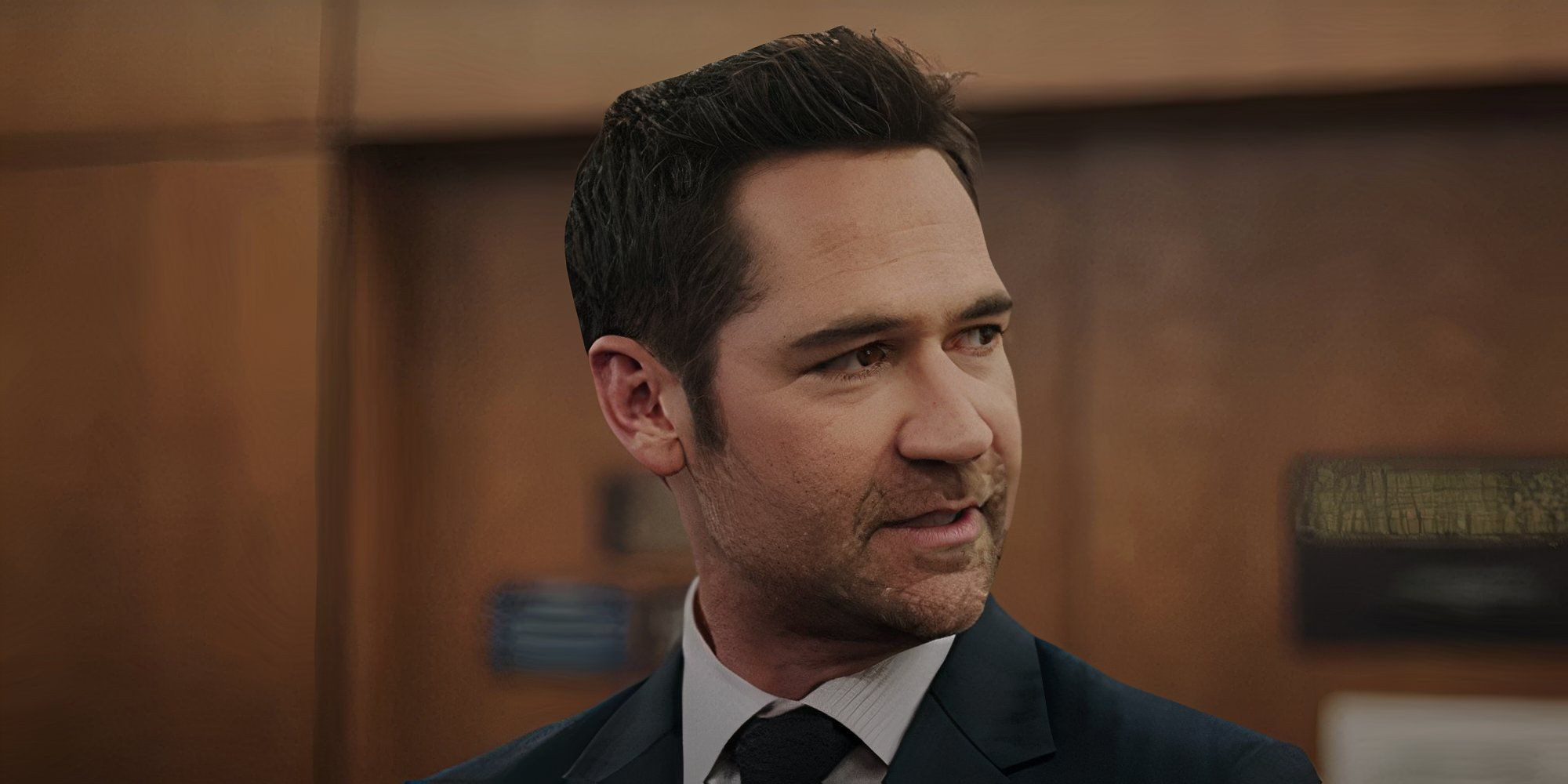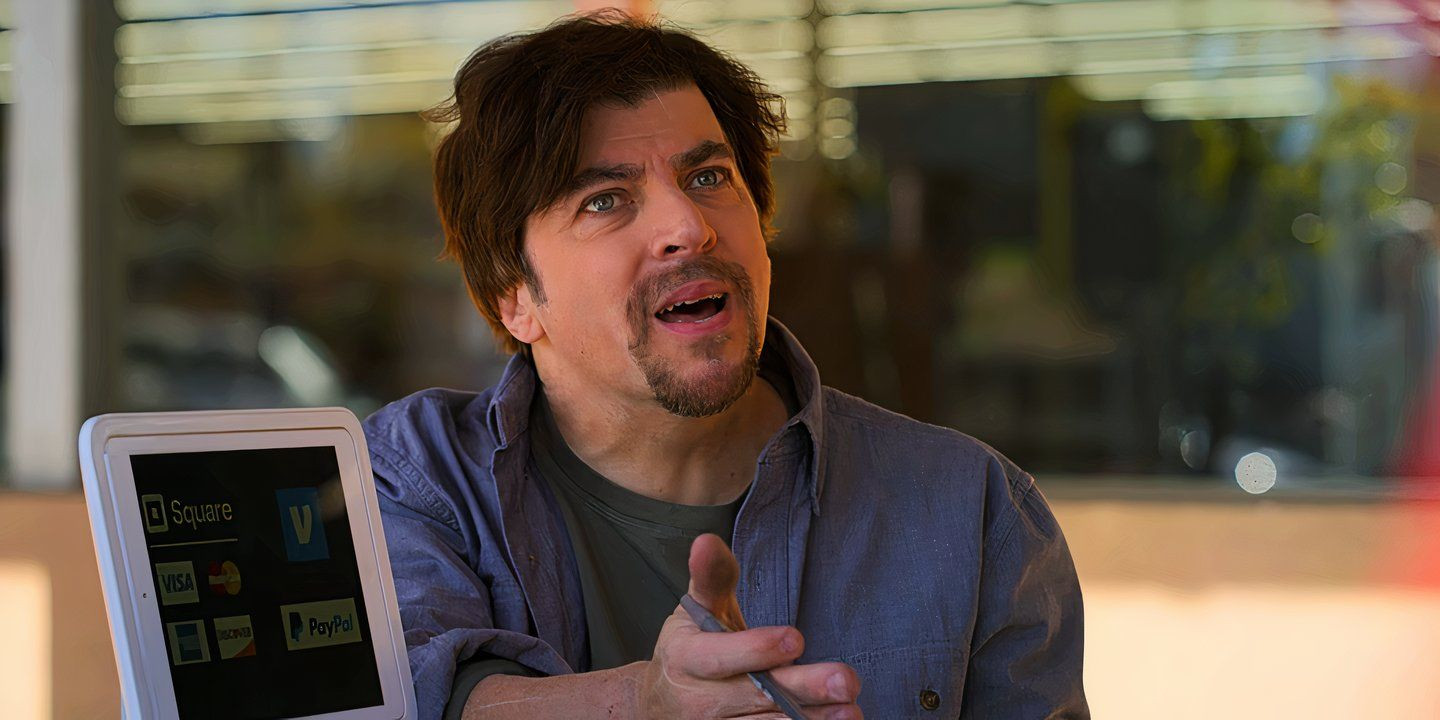Season 3 of Netflix’s acclaimed legal drama, The Lincoln Lawyer, plunges viewers into a murky world of corruption, deceit, and the relentless pursuit of justice. Picking up where season 2 left off, Mickey Haller finds himself entangled in the perplexing case of Julian La Cosse, accused of murdering his friend and former client, Gloria Dayton, infamously known as Glory Days. Driven by his unwavering belief in Julian’s innocence, Mickey embarks on a journey that peels back layers of conspiracy, ultimately revealing the shocking truth behind Glory Days’ untimely demise and the far-reaching implications of its cover-up. This season, adapted from Michael Connelly’s novel The Gods of Guilt, masterfully interweaves intricate plotlines, keeping audiences on the edge of their seats until the final, dramatic revelations about the “Glory Days Lincoln Lawyer” case.
The Glory Days Conspiracy Unveiled: Agent De Marco’s Sinister Role
Initially, the series casts suspicion upon Julian La Cosse as the prime suspect in the murder of Glory Days. However, as Mickey Haller and his dedicated team delve deeper into the intricacies of the case, a far more sinister narrative begins to emerge. It becomes increasingly clear that Glory Days’ death was not a random act but a calculated move orchestrated by DEA Agent James De Marco. Glory Days, subpoenaed to testify against De Marco for coercing her to plant evidence in Hector Moya’s residence, posed a significant threat to the corrupt agent’s operations. This revelation shifts the focus from Julian’s alleged crime to a much larger conspiracy, with Glory Days becoming a casualty of powerful, illicit dealings.
The pivotal moment of truth arrives when Neil Bishop, a former police detective turned DA investigator, takes the witness stand. In a stunning courtroom confession, Bishop unveils the most disturbing aspect of the conspiracy: Agent De Marco himself was Glory Days’ killer. Bishop, complicit in De Marco’s scheme to silence Glory Days, alerted the agent upon her arrival home on the fateful night. De Marco then infiltrated her house through the back entrance, ensuring his actions remained concealed.
While the precise sequence of events within Glory Days’ home remains shrouded in mystery, the autopsy report provides chilling clues. It’s highly probable that De Marco, in a brutal act of violence, strangled Glory Days, evidenced by the fractured hyoid bone. A neighbor’s account of hearing yelling adds to the grim picture, though it remains ambiguous whether this was related to an earlier encounter with Julian or the fatal confrontation with De Marco. Regardless, De Marco proceeded to set fire to the house, a crude attempt to obliterate evidence, before informing Bishop that Glory Days was already deceased upon his entry. This revelation confirms the horrifying reality: Glory Days was silenced permanently by the very agent she threatened to expose, solidifying the tragic end to the “glory days lincoln lawyer” saga within season 3.
Neil Bishop’s Tragic Choice: Suicide and the Weight of Corruption
The climax of The Lincoln Lawyer season 3 is punctuated by a heart-wrenching and deeply unsettling event: Neil Bishop’s suicide in the courtroom. This shocking act, meticulously planned by Bishop, underscores the immense pressure and moral conflict he faced. Bishop’s decision to bring a concealed weapon into the courtroom, bypassing standard security protocols, reveals the premeditated nature of his final act. His suicide is not portrayed as a simple escape but as a desperate measure born from the crushing weight of Agent De Marco’s influence and the pervasive corruption that had ensnared him.
Bishop’s testimony, exposing De Marco’s crimes, placed him in mortal danger. Having been privy to De Marco’s ruthlessness – his willingness to murder Glory Days and attempt to silence Mickey and other potential witnesses – Bishop understood the perilous position he was in. He was trapped between his conscience and the very real threat to his life posed by De Marco, a man who operated with impunity and without moral boundaries. In Bishop’s mind, suicide became the only viable escape from a situation he perceived as inescapable, a tragic illustration of the destructive power of corruption and fear.
Justice Outside the Courtroom: James De Marco’s Fate
In the aftermath of Neil Bishop’s explosive testimony, James De Marco’s world crumbles. Alerted to Bishop’s revelations via text from a DEA lawyer, the corrupt agent makes a hasty escape, attempting to evade the legal repercussions of his actions. Cisco, in a tense pursuit, makes a valiant effort to intercept De Marco, but ultimately, the agent slips through the grasp of the law, seemingly disappearing into thin air.
However, justice, in a twisted form, finds its way to De Marco. Months after the tumultuous trial concludes, Izzy stumbles upon a disturbing photograph – De Marco lifeless, with a snake coiled around his neck. This grim image reveals that Hector Moya, the drug cartel leader De Marco had double-crossed, orchestrated a brutal act of vigilante justice. Moya’s motive is twofold: revenge for De Marco’s initial setup that led to his imprisonment and retribution for De Marco’s betrayal in working with a rival cartel, disrupting Moya’s own illicit operations. De Marco’s demise, though outside the bounds of the legal system, serves as a stark consequence for his heinous crimes, highlighting the cyclical nature of violence and retribution within the criminal underworld exposed by the “glory days lincoln lawyer” case.
 Mickey Haller contemplates the systemic failures in the justice system after the Julian La Cosse trial in The Lincoln Lawyer season 3, reflecting on the Glory Days case.
Mickey Haller contemplates the systemic failures in the justice system after the Julian La Cosse trial in The Lincoln Lawyer season 3, reflecting on the Glory Days case.
Mickey’s Pursuit of Systemic Accountability: Targeting the DA
The conclusion of Julian’s trial leaves Mickey grappling with profound disillusionment. He is acutely aware of the systemic failures that led to the deaths of Glory Days and Eddie Rojas, and the near miscarriage of justice for Julian. De Marco’s escape further exacerbates Mickey’s sense of helplessness, leaving him questioning the efficacy of the legal system itself. He contemplates abandoning his career, weighed down by the perceived futility of his efforts.
It is Hayley, Mickey’s daughter, who rekindles his resolve. Her simple yet powerful statement, “The system will never work if people don’t make it work,” resonates deeply with Mickey. It reminds him of the crucial role individuals play in upholding justice, even within a flawed system. Inspired by Hayley’s faith in him and his profession, Mickey redirects his despair into a renewed determination to hold the responsible parties accountable.
Instead of seeking conventional legal justice for De Marco’s escape, Mickey strategically targets the District Attorney’s office, recognizing their complicity in the corruption. In a calculated move during the finale, he compels them to financially compensate Julian for his wrongful imprisonment, a direct consequence of their office’s failures and ethical compromises. Mickey then channels a portion of this settlement to Eddie’s grieving mother, offering a measure of solace and practical support in the wake of unimaginable loss. While this outcome falls short of complete justice, it represents Mickey’s pragmatic approach to leveraging the system, forcing accountability where possible and providing tangible relief to those wronged by the “glory days lincoln lawyer” saga and its wider web of corruption.
 Sam Scales, portrayed by David Clayton Rogers, in a scene with Lorna Crane from The Lincoln Lawyer season 2, foreshadowing his return and mysterious death in season 3.
Sam Scales, portrayed by David Clayton Rogers, in a scene with Lorna Crane from The Lincoln Lawyer season 2, foreshadowing his return and mysterious death in season 3.
Setting the Stage for Season 4: The Body in Mickey’s Trunk
As with the conclusion of The Lincoln Lawyer season 2, season 3’s finale masterfully sets the stage for the subsequent season, weaving in a cliffhanger that promises further turmoil for Mickey Haller. In the final moments, a routine traffic stop takes a dramatic turn when an officer opens the trunk of Mickey’s Lincoln to discover a dead body. The deceased is identified as Sam Scales, a con artist and former client of Mickey’s firm, who owed them a significant sum of money. Earlier in the season, Mickey, in a moment of frustration, had made a public statement to Sam, declaring he would be “dead” if he failed to settle his debt – a hyperbolic statement that now carries ominous weight.
Circumstantial evidence mounts against Mickey: means, motive, and opportunity all point towards his potential involvement in Sam’s murder. This sets the stage for season 4, which will likely draw inspiration from Michael Connelly’s novel The Law of Innocence. Mickey will transition from defender to defendant, forced to fight for his own freedom and prove his innocence in court. Fortunately, he will not face this daunting challenge alone. Lorna, having finally obtained her law license, is poised to play a crucial role in Mickey’s defense, promising a compelling season 4 centered around Mickey’s personal battle within the very legal system he has navigated for so long, a stark contrast to the “glory days lincoln lawyer” cases he typically handles.
Eddie’s Death: A Catalyst for Character Development
The Lincoln Lawyer season 3 introduces Eddie Rojas, a character strategically designed to forge a deep connection with Mickey and his family, making his subsequent fate all the more impactful. The narrative carefully cultivates Eddie’s likeability, drawing viewers in before abruptly and tragically taking him away. In a shocking turn of events, as Mickey and Eddie return from prison, they are deliberately struck by a speeding vehicle. The ensuing crash is violent and devastating; Mickey miraculously survives with relatively minor injuries, but Eddie is not so fortunate, succumbing to fatal wounds.
Eddie’s death serves as a pivotal catalyst, profoundly impacting both Mickey and Hayley’s character arcs. For viewers, Eddie’s sudden demise evokes a sense of loss and injustice mirroring that experienced by Mickey and Hayley. Hayley’s initial reaction is to blame her father, her anger, though misdirected, stemming from deep grief and a sense of helplessness. For Mickey, Eddie’s death amplifies his determination to solve the Glory Days case. With both Glory Days and Eddie now victims of the same corrupt forces, Mickey’s pursuit of justice intensifies, pushing him to take increasingly risky actions. He crosses ethical boundaries, resorting to blackmailing Neil Bishop and even forging Julian’s signature, demonstrating a marked shift towards more reckless tactics driven by grief and an unwavering need for accountability in the wake of the “glory days lincoln lawyer” case fallout.
Izzy’s Evolving Path: From Dance Studio to Stability
Izzy Letts, a key member of Mickey’s team, navigates her own personal and professional challenges in season 3. Despite her passion for dance and aspirations to run a successful studio, Izzy faces the harsh realities of business competition. Her newly established studio struggles to compete with a more established gym nearby, hampered by limited resources for marketing and client acquisition. Recognizing the unsustainable nature of her venture, Izzy makes a pragmatic decision to mitigate her losses by renting out the studio space to a television dance program. This marks a shift in Izzy’s career trajectory, moving away from direct dance instruction towards a more administrative and financially stable role within the dance industry.
Parallel to her studio struggles, Izzy auditions to be a dancer on the same TV show renting her studio. However, she ultimately declines the job offer, a decision deeply rooted in her commitment to sobriety. Witnessing a fellow dancer succumb to injury and subsequent reliance on prescription pain medication triggers a stark realization for Izzy. She recognizes the inherent physical risks of professional dancing and the potential for a single misstep to jeopardize her hard-won sobriety, potentially leading to relapse. Fortuitously, Mickey offers Izzy the position of office manager at his law firm, providing her with the financial security and stability she needs, allowing her to maintain her sobriety while remaining a vital part of Mickey’s team, a testament to her resilience and adaptability beyond the “glory days lincoln lawyer” case.
 The Lincoln Lawyer Season 2 poster, visually representing the series that precedes the events of season 3 and the Glory Days storyline.
The Lincoln Lawyer Season 2 poster, visually representing the series that precedes the events of season 3 and the Glory Days storyline.
The Core Message: Corruption, Complicity, and Hope
Season 3 of The Lincoln Lawyer serves as a compelling exploration of systemic corruption and ethical misconduct within law enforcement, the DA’s office, and governmental institutions. Unlike many legal dramas, it unflinchingly portrays these systems in a critical light, exposing the darker underbelly of the pursuit of justice. A central theme emerges: those who passively stand by in the face of corruption are deemed just as culpable as the perpetrators of immoral acts themselves. The season highlights the disturbing tendency of institutions, such as the DA’s office and the DEA, to prioritize self-preservation and reputation management over genuine justice and accountability, especially in cases like the “glory days lincoln lawyer” investigation.
Despite the pervasive cynicism, The Lincoln Lawyer season 3 concludes not without a glimmer of hope. Mickey Haller’s relentless pursuit of justice for Julian De Cosse, Glory Days, and Eddie Rojas underscores the existence of individuals who are willing to challenge wrongdoing and fight for meaningful change, even within compromised systems. Furthermore, Andy’s courageous decision to leak crucial evidence to a rival attorney demonstrates that integrity and a commitment to justice can be found even within flawed institutions. Ultimately, season 3 delivers a nuanced message: while corruption may be deeply entrenched, the fight for justice, driven by principled individuals, remains a vital and ongoing struggle, offering a beacon of hope amidst the darkness exposed by the “glory days lincoln lawyer” narrative.
Conclusion
Season 3 of The Lincoln Lawyer masterfully unravels a complex web of corruption and conspiracy surrounding the murder of Glory Days. Through shocking revelations, tragic losses, and unwavering determination, the season leaves a lasting impact. The pursuit of truth behind the “glory days lincoln lawyer” case exposes systemic flaws, highlights the devastating consequences of corruption, and ultimately underscores the importance of individual integrity in the face of injustice, setting the stage for a compelling and uncertain future for Mickey Haller and his team.

